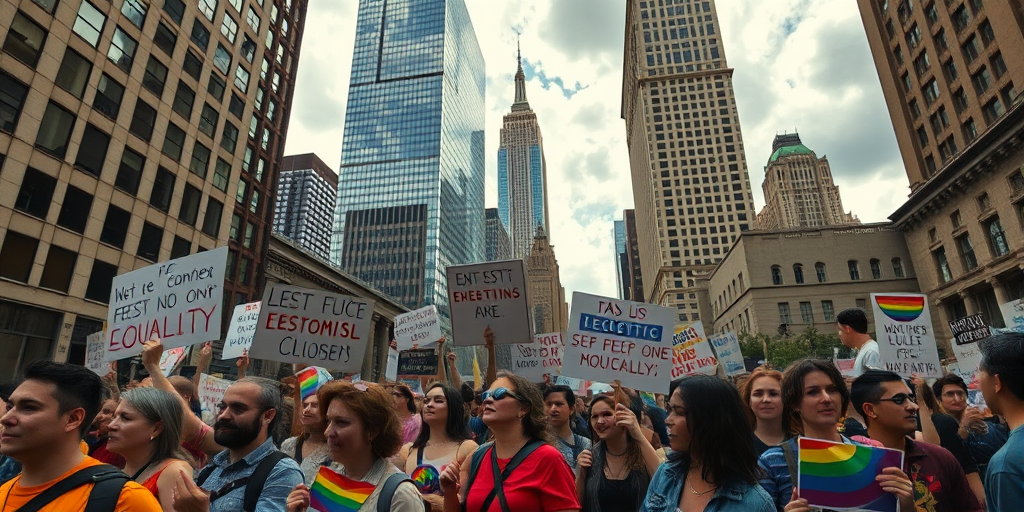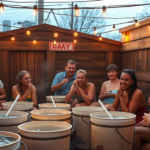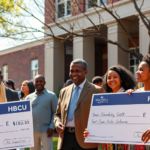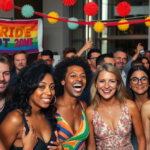Exploring the Significance of LGBTQ+ History in Today’s Society
In an era marked by evolving social norms and ongoing political debates, the importance of LGBTQ+ history remains a pivotal subject, especially within educational institutions like New York University (NYU). The university, recently highlighted in Washington Square News (WSN), serves as a microcosm of broader societal changes, holding discussions and events that emphasize the critical role of understanding LGBTQ+ history amid current socio-political challenges.
The Current Landscape at NYU
At NYU, vibrant student engagement has been evident through recent news events such as the cancellation of a debate between NYU College Democrats and Republicans. This incident underscores the dynamic political environment on campus, where issues of inclusivity and representation remain at the forefront of discourse. Furthermore, a recent study from NYU Steinhardt linking teacher turnover to increased student suspensions highlights educational challenges that could intertwine with discussions about inclusivity and representation in history and culture classes.
The NYU Tandon School’s launch of an institute to advance urban planning is another signal of the institution’s focus on progress and innovation, reflecting a broader commitment to creating an inclusive and forward-thinking environment. This institutional backdrop is crucial for examining the university’s efforts to embed LGBTQ+ history within its curriculum and student activities.
Understanding Local Impact and Community Interest
For residents of New York City, NYU’s initiatives extend beyond academic interest; they represent a commitment to fostering inclusive environments that acknowledge diverse histories and identities. The city, historically a hub for LGBTQ+ activism, echoes this sentiment, showcasing the importance of integrating LGBTQ+ history into educational narratives, not just within university walls but throughout community engagements.
Gallatin first-year student Kei Izanec, involved in a seminar on queer nightlife, highlights the urgency of this educational focus, stating, “We have to learn as much as we can before either this is gone or we have nothing else to talk about. We need to keep what little that we have.”
Connecting Historical and Contemporary Challenges
The Trump administration’s actions, particularly aimed at rolling back LGBTQ+ rights, serve as a reminder of historical challenges faced by the community. Executive orders targeting gender identity and education cuts for transgender students echo past discriminatory practices, such as the mid-1900s Lavender Scare. These historical contexts contribute to a broader understanding of contemporary issues, offering a lens through which students and community members can examine recurring patterns of discrimination and resistance.
Solomon Brager, a professor in the Department of Social and Cultural Analysis at NYU, elaborates on this cyclical nature of history. “History is incredibly iterative,” Brager notes. “We’ve been through this before, and we made it out the other side,” a powerful reminder of the community’s resilience and continuity.
Future Implications for the NYU and Broader Community
The significance of LGBTQ+ history extends into future policy and educational developments. Considering potential shifts in federal policies and public attitudes, NYU and similar institutions might play a crucial role in advocating for comprehensive educational reforms that promote inclusivity. The continuation of this educational focus is likely to foster a more informed and empathetic society, well-equipped to tackle future equality challenges.
Furthermore, the implications of such education are profound. Initiatives like NYU’s engagement with LGBTQ+ history prepare students to become thoughtful leaders and advocates in their future careers. As CAS junior Kate Morrison aptly puts it, expanding this education beyond college can have transformative impacts on society at large, ensuring that the struggles and contributions of marginalized communities remain an integral part of cultural understanding.
Engaging Various Perspectives and Resources
In addressing this topic, it’s essential to consider various perspectives. While some may argue for the inclusion of LGBTQ+ history, others may express concerns over resource allocations or curricular priorities. A balanced approach, incorporating community feedback and academic perspectives, is vital to crafting comprehensive educational strategies.
For NYU students and New Yorkers seeking more information or wishing to engage further in this dialogue, several resources are available. The NYU Skirball Book Club regularly hosts discussions and events focusing on LGBTQ+ figures, providing a platform for continued exploration of these important narratives.
To remain updated, readers and residents can engage with Washington Square News’s online platforms or directly contact them through their available channels to learn more about upcoming events or initiatives related to LGBTQ+ history and education.
Ultimately, examining LGBTQ+ history within both educational and community contexts offers an opportunity for reflection, understanding, and growth, ensuring that past struggles fuel future progress. By embracing and integrating these narratives, institutions like NYU continue to contribute to an inclusive environment that values and learns from all aspects of its community’s history.







